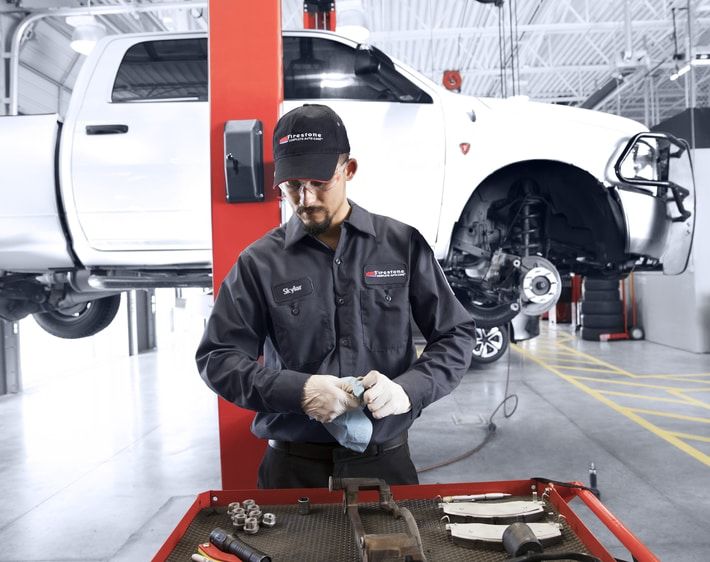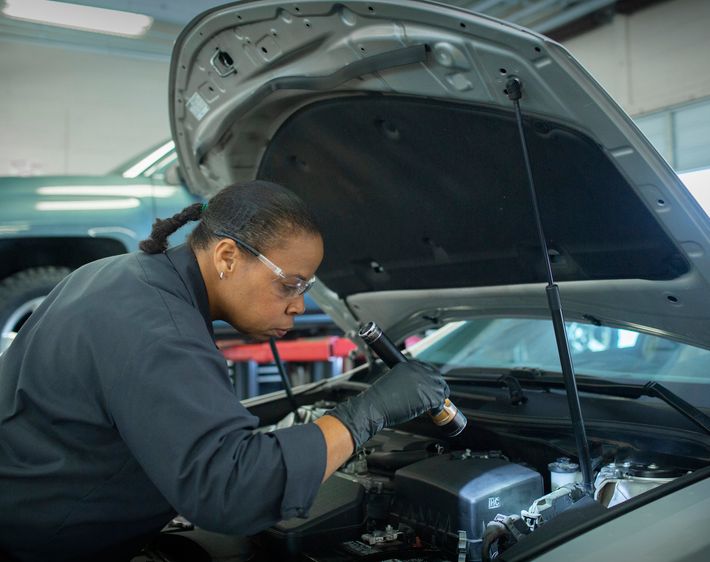There are plenty of reasons you love your diesel-fueled vehicle such as better fuel economy, lower emissions, and cheaper and less frequent required maintenance checks than gas-powered vehicles.
But just because those maintenance checks are less frequent, doesn’t mean you can’t take care of your diesel engine in the meantime. If you want to keep your beloved diesel truck or sedan running newer, longer, then check out these tips on diesel engine maintenance.
1. Clean your engine.
Since diesel engines tend to have a longer lifespan than their gas counterparts, they may benefit from more frequent cleaning. After all, when a vehicle navigates longer distances and more challenging tasks, dirt and dust have more opportunities to collect on its engine.
When dirt collects on your engine’s components, it shortens their lifespan and can even decrease fuel efficiency. Plus, if you live in an area with harsh winters, your engine’s pieces and parts may wear quicker due to contact with road salt, which intensifies rust and corrosion.
Needless to say, proper cleaning is an easy but important way to care for your diesel engine. You’ll want to consult your owner’s manual before you start cleaning. But most likely, you’ll need:
- An old toothbrush to help you get into the nooks and crannies
- A moist sponge to wipe down the engine bay
- A specialized degreaser to safely dissolve gunk
As always, make sure your engine is cool before you start scrubbing, and wear protective gear like goggles and gloves.
Some engine components may not be waterproof, so check your vehicle’s manual to see what’s safe to hose down. Car and Driver recommends using plastic bags to protect those water-sensitive parts while cleaning.
Pro-tip: If you’d rather not use water at all, consider using the low setting on a leaf blower to dust off your engine bay.
2. Check your air filter.
While you're under the hood, check out your air filter. On most vehicles, including diesel ones, the air filter is under the hood inside a rectangular cold air collector box that's located up near the front of the engine compartment.
A filthy filter can “choke” your engine, forcing it to use more fuel to get the power and acceleration that you depend on. Generally, you should get your air filter replaced every 12,000 miles, or have it checked out if you notice decreased engine power, weaker acceleration, or increased engine wear.
3. Take care of your engine’s radiator.
A car’s radiator keeps it cool by transferring heat from the engine to the air. But how does this cooling process work? First, antifreeze (or coolant) travels through the engine “picking up” heat. The hot coolant cycles back to the radiator which dissipates heat into the air. Then, the freshly-cooled antifreeze travels back to the engine, repeating this cycle.
Since diesel engines tend to run hotter than gas motors, their radiators are subject to higher temperatures, which can lead to overheating. Overheating may warp engine components such as cylinders and gasket seals, eventually leading to complete (and potentially irreparable) engine failure.
Proper cooling system maintenance such as regular coolant or radiator exchanges are a great way to help prevent overheating in your diesel engine. Here’s what to expect during a radiator exchange service:
- A specialized cleaning fluid is pumped through the cooling system and radiator.
- Rust and impurities are eliminated in the antifreeze.
- The system is topped off with new antifreeze to help it cool efficiently.
Many automobile manufacturers suggest getting radiator fluid exchanges every 40,000 to 60,000 miles, but it’s always best to check the manufacturer’s recommendations for your diesel car or truck. Get your cooling system and radiator checked out earlier if you notice:
- Orange- or green-ish fluid leaks on the surface under your card
- A maple syrup-like smell coming from the engine
- Steam coming from under the hood
4. Get the fuel filters replaced.
Gas vehicles have a single fuel filter, but most diesel engines have two — a primary fuel filter between the gas tank and the engine, and a secondary filter between the transfer pump and fuel injectors. Due to the less-refined nature of diesel, the fuel tends to absorb more water from condensation in the tank leading many manufacturers to build diesel engines with two fuel filters.
When there are water particles in diesel, a few things can happen to your engine:
- You could notice a decrease in horsepower.
- Your engine could stall.
- Your fuel injectors could explode.
Don't wait for car problems to pop up! Instead, help avoid them with a Complete Vehicle Inspection and preventative maintenance services. Most diesel engines need fuel filter replacement services every 10,000 to 15,000 miles, but you should check the manufacturer's recommendations for your make and model. Keep in mind that it is advisable to replace primary and secondary fuel filters at the same time to maximize their efficiency and lifespan.
Get The Best Diesel Engine Maintenance Near You
Whether you drive it for work, play, or both — your diesel vehicle always takes care of you. Help maintain its reliability by taking care of your diesel engine, too. Visit a Firestone Complete Auto Care near you, and learn how we can help keep your diesel engine revving for many miles to come.



